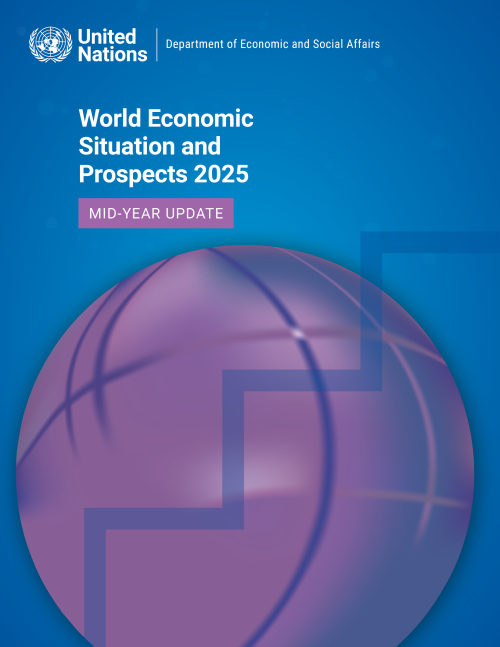
The world economy is at a precarious moment. Heightened trade tensions, along with policy uncertainty, have significantly weakened the global economic outlook for 2025. Higher tariffs—resulting in a significant increase in the effective tariff rate in the United States of America—are likely to strain global supply chains, drive up production costs and delay critical investment decisions, while also contributing to financial market volatility. Global economic growth is now projected to slow to 2.4 per cent in 2025, down from 2.9 per cent in 2024, and 0.4 percentage points below the January forecast. The downward revisions in growth forecasts are broad-based, affecting both developed and…
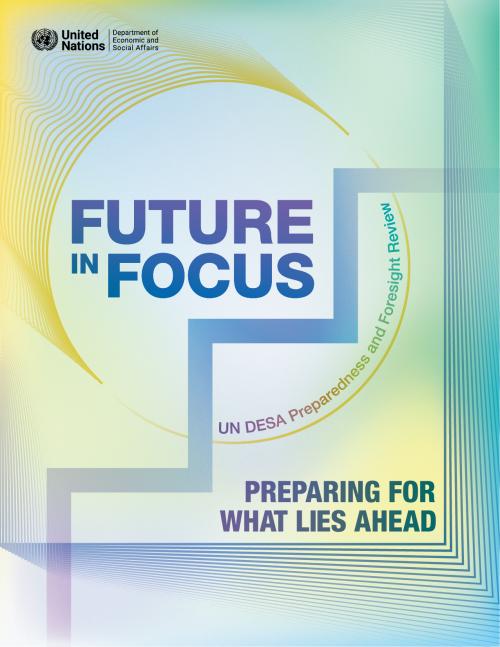
In an era marked by complex and interwoven crises, the role of the United Nations in preparing for the future has never been more critical. This review of UN DESA’s foresight and preparedness efforts shows how the Department’s economic and demographic forecasts, capacity development programmes, and work towards accelerating an inclusive and just transition help governments and people make strategic choices to shape and prepare for the future they want.
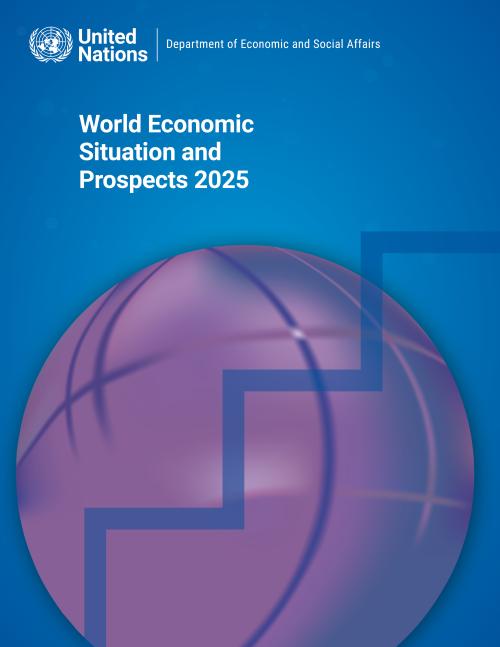
Global economic growth is projected to remain at 2.8 per cent in 2025, unchanged from 2024, according to the United Nations flagship report, World Economic Situation and Prospects (WESP) 2025. While the global economy has demonstrated resilience, withstanding a series of mutually reinforcing shocks, growth remains below the pre-pandemic average of 3.2 per cent, constrained by weak investment, sluggish productivity growth, and high debt levels.
The report notes that lower inflation and ongoing monetary easing in many economies could provide a modest boost to global economic activity in 2025. However, uncertainty still looms large, with risks stemming from geopolitical conflicts,…
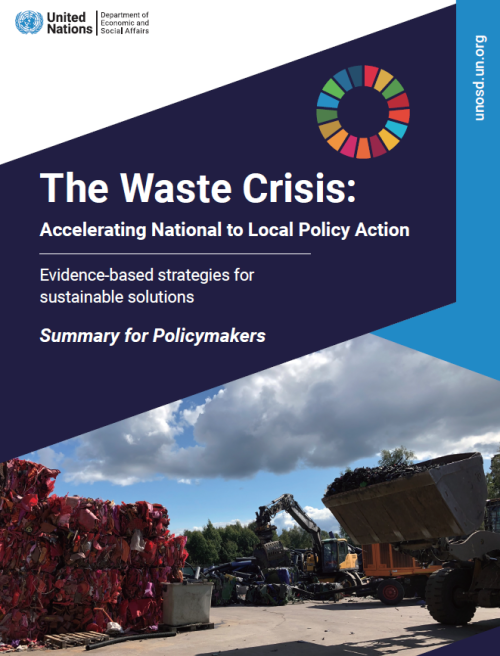
This Summary for Policymakers presents key facts, recommendations and next steps as a summary of the wider publication titled The Waste Crisis: Accelerating National to Local Policy Action Evidence-based strategies for sustainable solutions. The publication addresses the interlinkages between our current global production and consumption systems, which has led to a waste crisis requiring renewed attention on sustainable waste management policy and practice. Developed through a consultative process with inputs from experts across Member States, the United Nations, and civil society,
the report reviews current sustainable waste…
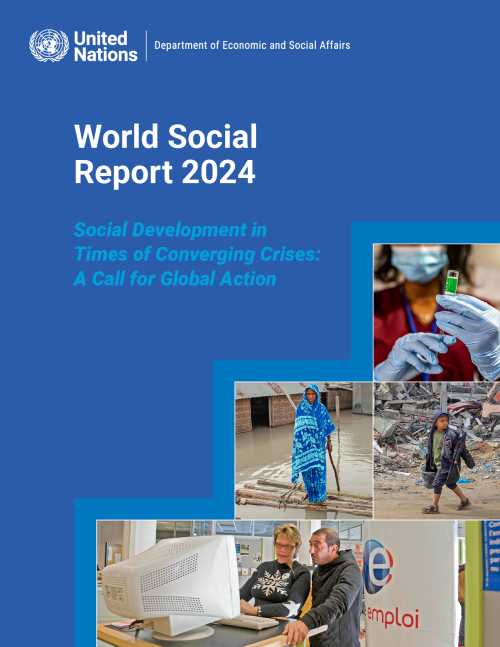
According to the World Social Report 2024, urgent global action is needed to support national efforts to address the setbacks caused by the recent global crises, and to avoid the conversion of future shocks to crises.
Titled “Social Development in Times of Converging Crises: A Call for Global Action”, the World Social Report 2024 explains that, in our current global policy environment, shocks more readily turn into crises that cross boundaries, demanding international action. Particularly as such crises disproportionately impact the most vulnerable people, societies and countries.
Crisis-driven setbacks in poverty reduction and unemployment
Successive shocks,…
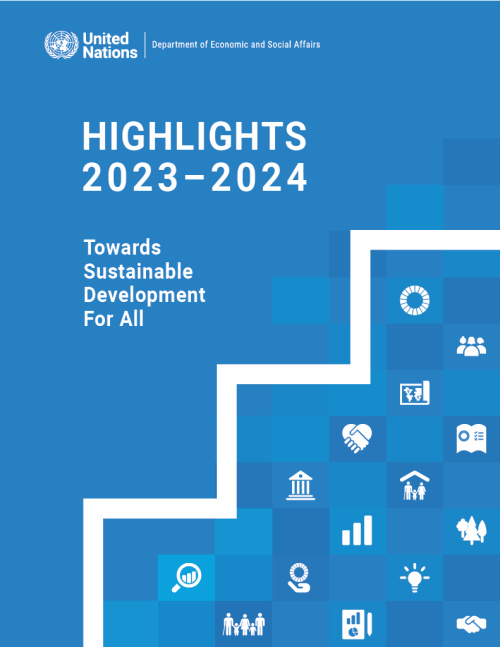
The UN DESA Annual Highlights report is a tool to communicate the contributions of the Department to the realization of internationally agreed development goals and shared social, economic, and environmental aspirations. It showcases the Department’s role in gauging trends, building capacities, and shaping solutions. UN DESA Highlights 2023–2024 covers activities over the period of the 78th Session of the General Assembly (September 2023 – August 2024) and reflects the Department’s response to the set priorities and expressed needs of Member States. Seven (7) thematic chapters showcase how UN DESA put its expertise to the task of supporting Member State efforts to implement the 2030…
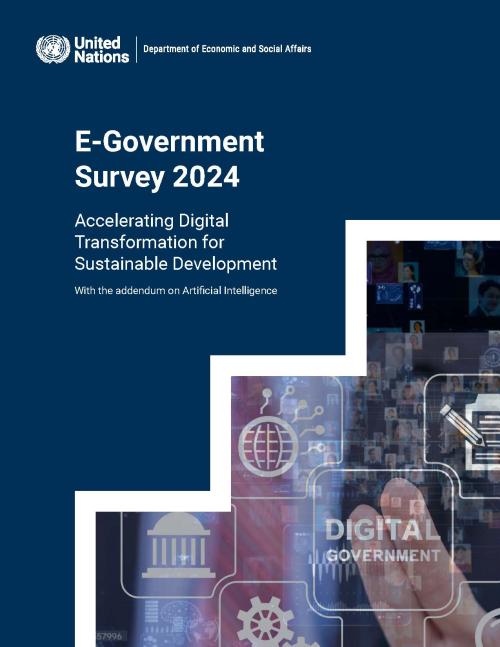
This thirteenth edition of the United Nations E-Government Survey, released in 2024, provides a comprehensive assessment of the digital government landscape across all 193 Member States. The 2024 Survey highlights a significant upward trend in the development of digital government worldwide, with increased investment in resilient infrastructure and cutting-edge technologies. The global average value of the E-Government Development Index (EGDI) shows substantial improvement, with the proportion of the population lagging in digital government development decreasing from 45.0 per cent in 2022 to 22.4 per cent in 2024.
Despite significant progress in digital government…
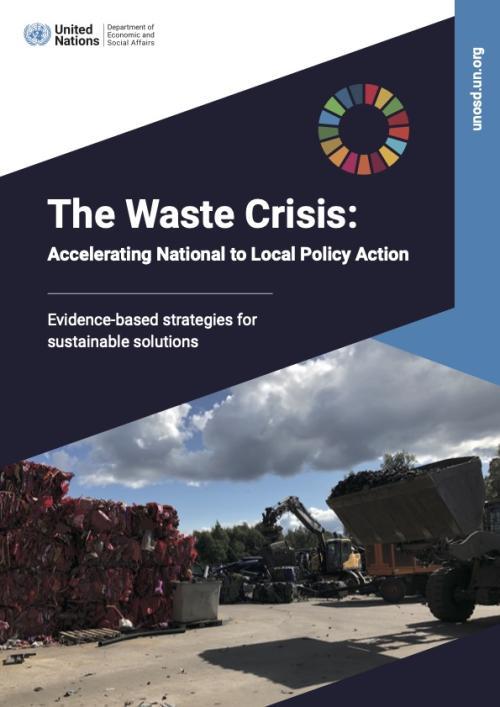
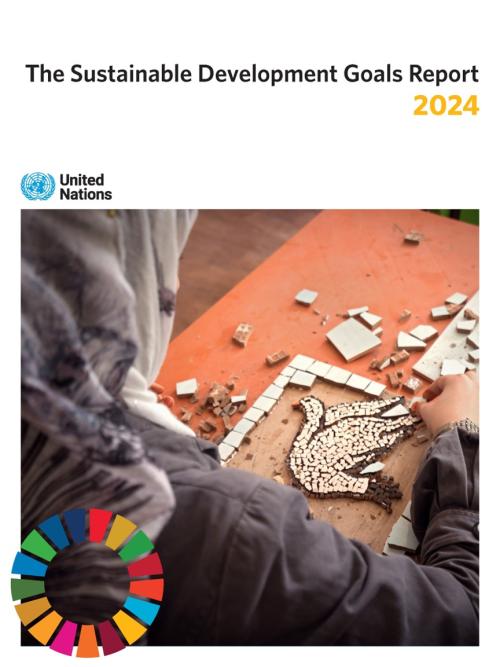
The Sustainable Development Goals Report 2024 details the significant challenges the world is facing in making substantial strides towards achieving the SDGs based on the latest data and estimates. It features areas with setbacks while also showcasing where tangible progress has been made, for instance, in reducing global child mortality, preventing HIV infection, and access to energy and mobile broadband. The report also highlights where action must accelerate, particularly in critical areas undermining SDG progress - climate change, peace and security, inequalities among and between countries, among others.
According to the report, with just six years remaining, current progress…
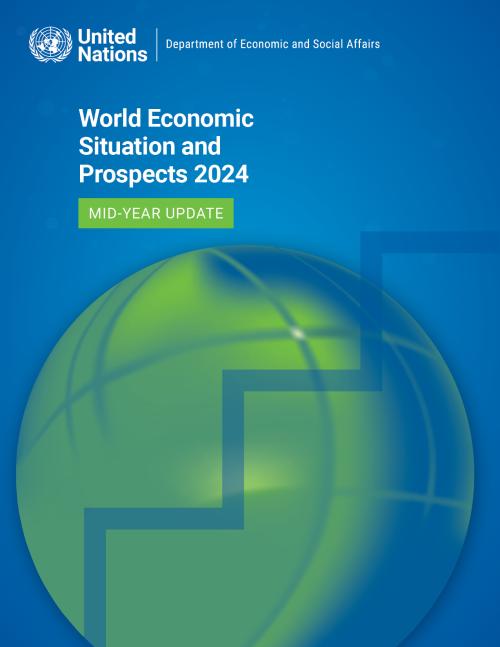
Global economic prospects have improved since January, with major economies avoiding a severe downturn, bringing down inflation without increasing unemployment. However, the outlook is only cautiously optimistic. Higher-for-longer interest rates, debt sustainability challenges, continuing geopolitical tensions and ever-worsening climate risks continue to pose challenges to growth, threatening decades of development gains, especially for least developed countries and small island developing States.
According to the World Economic Situation and Prospects as of mid-2024, the world economy is now projected to grow by 2.7 per cent in 2024 (+0.3 percentage points from the January…

The Handbook on the Least Developed Country Category contains comprehensive and authoritative information on criteria defining the category, graduation procedures, and international support measures for least developed countries (LDCs). This 5th edition reflects recent developments in the LDC category, including refinements to the LDC criteria and the progress of several countries towards graduation from the category. Moreover, it contains updated information on international support measures, including on “smooth transition” provisions for countries graduating from the LDC category. The Handbook, prepared by the Committee for Development Policy (CDP) and the UN Department of Economic…
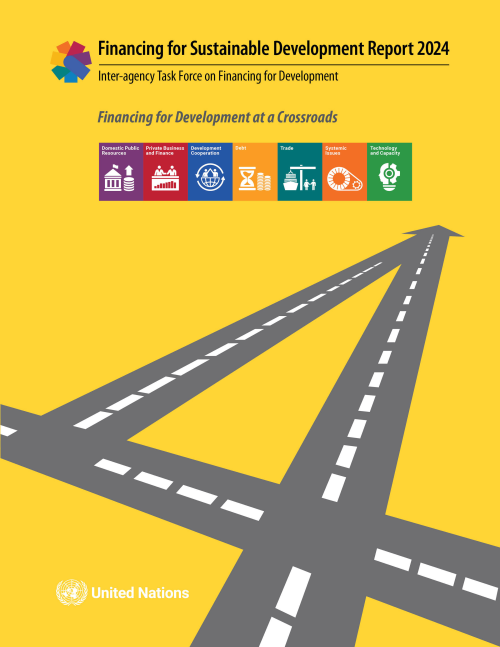
The world is facing a sustainable development crisis. The 2024 Financing for Sustainable Development Report: Financing for Development at a Crossroads finds that financing challenges are at the heart of the crisis and imperil the SDGs and climate action. The window to rescue the SDGs and prevent a climate catastrophe is still open but closing rapidly.
Financing gaps for sustainable development are large and growing – the estimates by international organizations and others are coalescing around $4 trillion additional investment needed annually for developing countries. This represents a more than 50% increase over the pre-pandemic estimates. Meanwhile, the finance divide has not…
 Welcome to the United Nations
Welcome to the United Nations